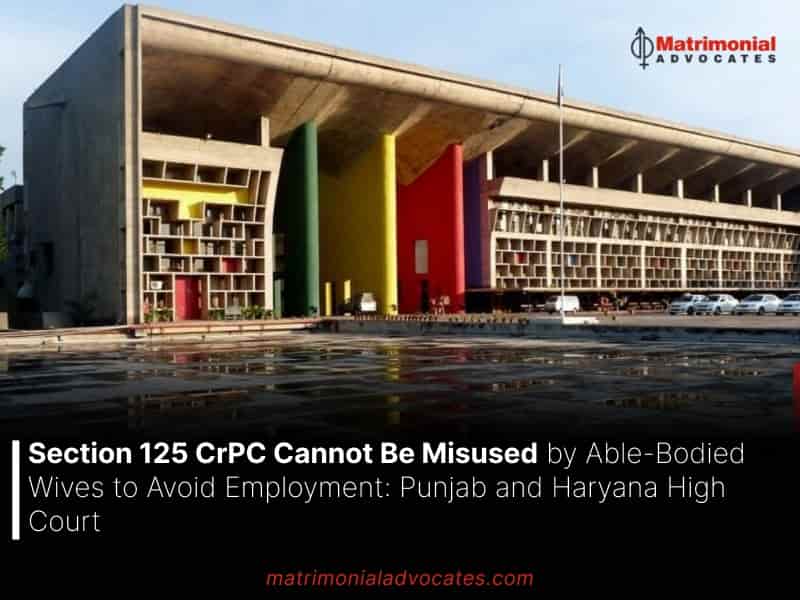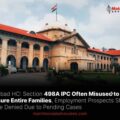
In a significant ruling, the Punjab and Haryana High Court clarified that the maintenance provision under Section 125 CrPC should not be exploited by able-bodied wives who willingly choose not to seek employment. Justice Nidhi Gupta made this observation while affirming a lower court’s decision to deny a woman’s plea for maintenance from her husband.
Justice Gupta emphasized that Section 125 CrPC is intended to prevent destitution and homelessness among wives who are genuinely unable to sustain themselves. She stated, “The provision is not designed to serve as a tool for capable individuals to avoid employment and rely solely on their spouses for support.”
The case concerned a rural woman who claimed to have no income and declared herself financially dependent on her husband, a mason earning around ₹12,000 per month. However, her maintenance plea was initially dismissed by the family court due to inconsistencies in her statements, including discrepancies regarding the birth dates of their children.
It was revealed that the woman left her matrimonial home in July 2014 and sought maintenance in November of the same year. After evaluating the evidence, the family court concluded that she had abandoned her home without a justifiable reason, resulting in the dismissal of her maintenance request.
During cross-examination, it was also revealed that the woman had no intention of reconciling with her husband and had made no efforts to seek custody of their minor children, who were between one and three years old when she left.
The High Court also noted that the husband’s actual monthly income was significantly lower than what was claimed, ranging between ₹6,000 and ₹7,000, which he used to support their children and his elderly mother. Given these circumstances, the court held that it was the petitioner’s primary responsibility to seek employment and support herself, thereby rejecting her claim for maintenance.





